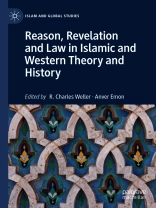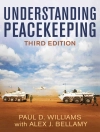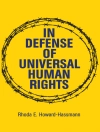This book engages the diverse meanings and interpretations of Islamic and Western law which have affected people and societies across the globe, past and present, in correlation to the epistemological groundings of those meanings and interpretations. The volume takes a distinctively comparative approach, advancing dialogue on crucial transnational and global debates over the history of Western and Islamic approaches to law, politics and society and their relevance for today. It discusses how fundamental concepts are understood and even translated from one historical or political context or one semantic domain to another. The book provides focused studies of key figures and theories in a manageable, accessible format useful for specialized academic courses and research as well as general audiences.
Inhoudsopgave
Chapter 1: The Historic Relation of Islamic and Western Law.-
Chapter 2: Al-madhhab al-jarīrī: ‘Revealed’ Natural Law Theory, Social Contract, and Human Rights in the Islamic Golden Age.-
Chapter 3: Natural Law Theory and Ghazali’s Moral Epistemology: Reason, God, and Human Nature.-
Chapter 4: Elitism, Democracy and Epistemic Equality: Aristotle and Ibn Rushd on the Role of Common Beliefs.-
Epilogue : Critical Reflections in Retrospect and Prospect.
Over de auteur
R. Charles Weller, Associate Professor of History (Career-Track), Washington State University, and Senior Research Fellow, Department of Religion and Culture, Al-Farabi Kazakh National University, Almaty, Kazakhstan
Anver Emon, Professor of Law and History; Canada Research Chair in Religion, Pluralism and the Rule of Law; Director, Institute of Islamic Studies, University of Toronto, Canada












